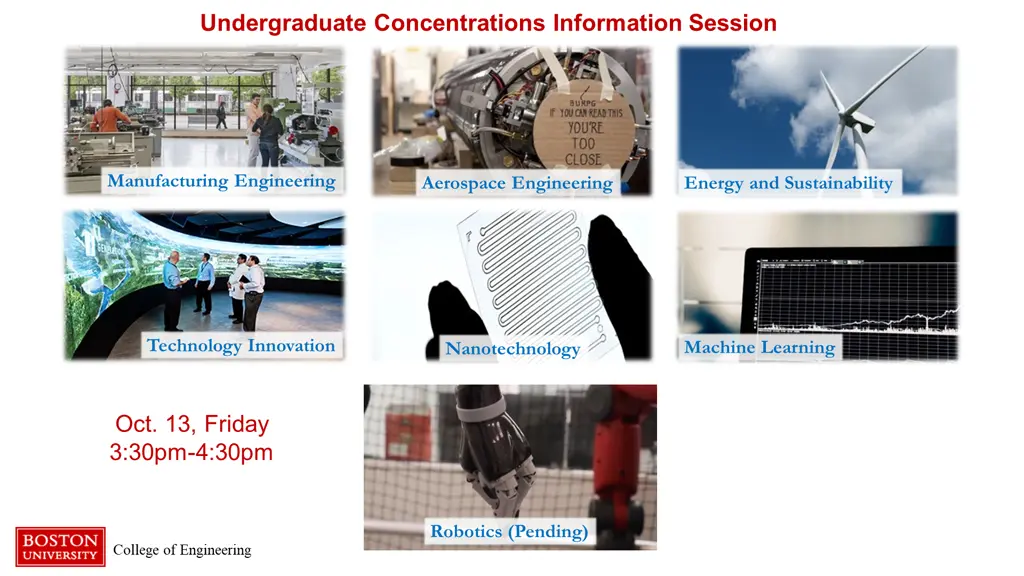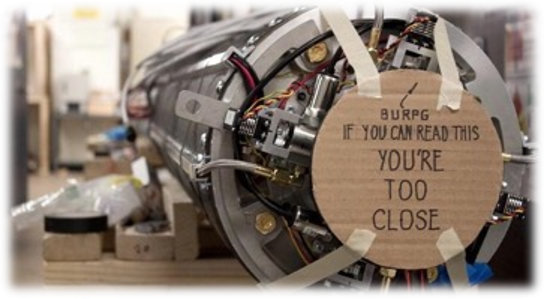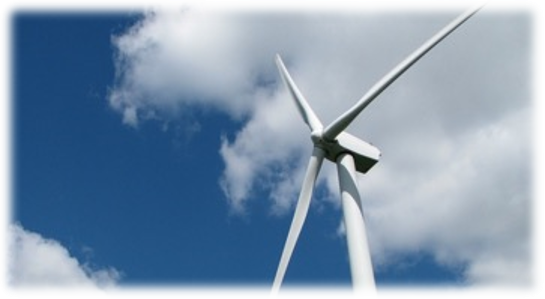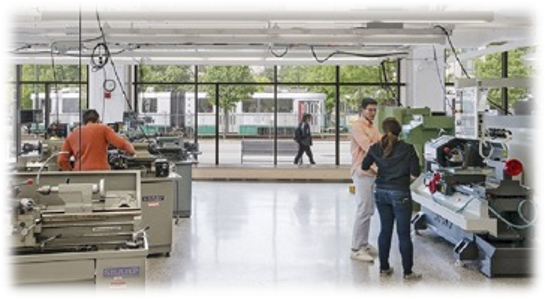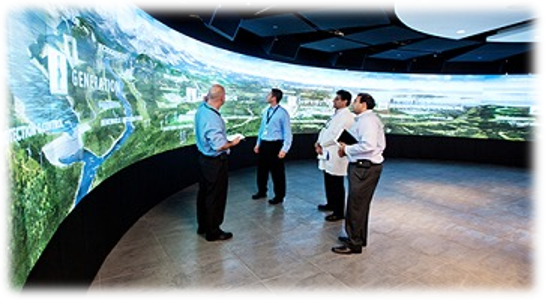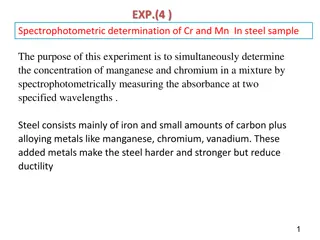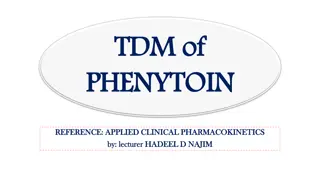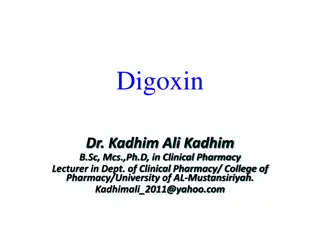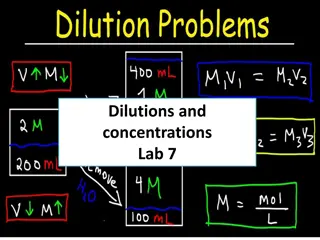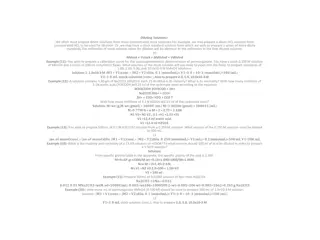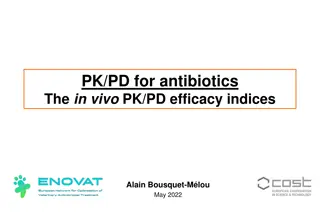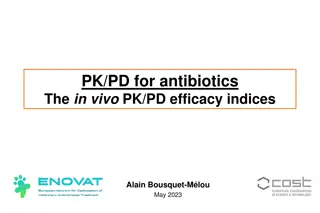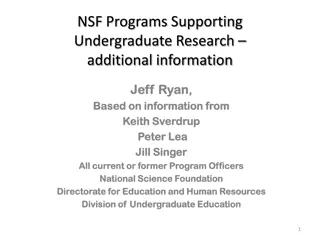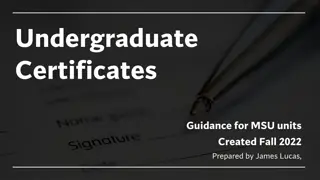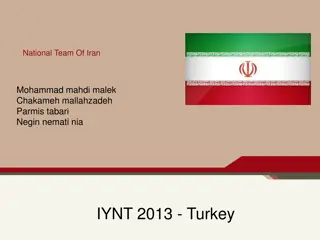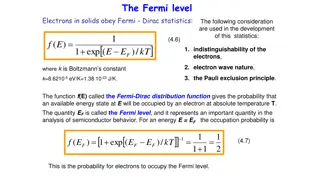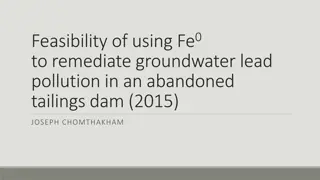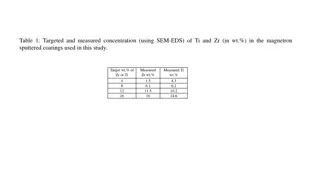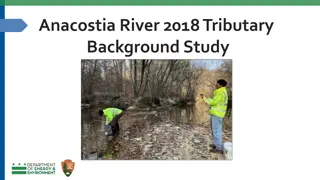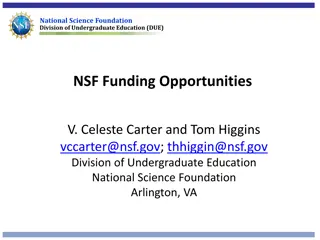Undergraduate Concentrations Information Session
The undergraduate concentrations available in the College of Engineering, including Manufacturing Engineering, Aerospace Engineering, Energy and Sustainability, Technology Innovation, Machine Learning, and Nanotechnology.
Download Presentation

Please find below an Image/Link to download the presentation.
The content on the website is provided AS IS for your information and personal use only. It may not be sold, licensed, or shared on other websites without obtaining consent from the author.If you encounter any issues during the download, it is possible that the publisher has removed the file from their server.
You are allowed to download the files provided on this website for personal or commercial use, subject to the condition that they are used lawfully. All files are the property of their respective owners.
The content on the website is provided AS IS for your information and personal use only. It may not be sold, licensed, or shared on other websites without obtaining consent from the author.
E N D
Presentation Transcript
Undergraduate Concentrations Information Session Manufacturing Engineering Aerospace Engineering Energy and Sustainability Technology Innovation Machine Learning Nanotechnology Oct. 13, Friday 3:30pm-4:30pm Robotics (Pending) College of Engineering
Structure and Timeline For Concentrations Three Courses (12 credits) Topical Declare the concentration (by May 1 junior year) Concentrations typically may one or more required courses Check concentration webpage One or more courses are typically required *before* doing experience plan ahead! Experiential Component: Internship, lab experience, directed study, senior design Submit proposal *before* starting the experience Submit by Fall of Senior year (specific dates vary) Complete by Spring of Senior year (specific dates vary) College of Engineering
Concentration Topics: 5 min each 1. Aerospace Engineering (Ray Nagem) 2. Energy Tech. and Sustainability (Joerg Werner) 3. Manufacturing Engineering (Jim Perkins) 4. Technology Innovation (Tom Little) 5. Machine Learning (Prakash Ishwar) 6. Nanotechnology (Anna Swan) 7. Robotics (Roberto Tron) College of Engineering
Aerospace Engineering Contact Concentration Coordinator: Prof. Nagem (nagem@bu.edu) College of Engineering
Energy Technology and Sustainability Contact Concentration Coordinator: Prof. Uday Pal (upal@bu.edu) College of Engineering
Energy Technology and Sustainability Engineering breakthroughs in energy and the environment will shape our future society. The Energy Technologies and Sustainability concentration is designed for undergraduate engineering students to acquire an understanding of the various energy generation, storage, conversion, and consuming technologies and their environmental impacts and put them in a position to pursue a career in green technology. College of Engineering
Energy Technology and Sustainability Additional Courses: (Choose remaining courses from the list below; no more than one CAS EE course or EK 335) Restricted Elective (at least one but both can be taken) ENG EK 408 Introduction to Clean Energy and Storage Technologies ENG EC 417 Electric Energy Systems: Adapting to Renewable Resources *CAS EE 250 The Fate of Nations: Climate, Resources and Institutions *CAS EE 304 / IR 304 Environmentally Sustainable Development *CAS EE 309 Intermediate Environmental Analysis and Policy *CAS EE 545 Methods of Environmental Policy Analysis ENG EK 335 Introduction to Environmental Engineering ENG ME 533 Energy Conversion ENG ME 535 / MS 535 Green Manufacturing ENG EC 543 / ME 543 / SE 543 Sustainable Power Systems: Planning, Operation and Markets ENG ME 545 / MS 545 Electrochemistry of Fuel Cells and Batteries ENG EK 546 Assessment of Sustainable Energy Technologies ENG EC 573 / MS 573 Solar Energy Systems ENG EC 583 Power Electronics for Energy Systems *QST SI 453 Strategies for Environmental Sustainability College of Engineering
Experiential Component A senior design project, laboratory research, industrial internship or a directed study can satisfy this requirement. Prior to proposing an experiential component, you must have completed one ET Concentration allowed courses Experiential Component Approval form must be submitted to the Undergraduate Records Office. It must be approved by the Concentration coordinator before you start your experiential component. After completion, a written summary of the experiential component must also be submitted for approval using the Experiential Component Approval form. College of Engineering
Manufacturing Engineering Contact Concentration Coordinator: Prof. Perkins (perkins@bu.edu) College of Engineering
Technology Innovation Contact Concentration Coordinator: Prof. Thomas Little (tdcl@bu.edu) College of Engineering
Tech Innovation Concentration (TIC) 2 Required Core Courses Experiential Component 1 Elective ENG and Questrom The Business of Technology Innovation SI 480 Technology and its Commercialization SI 482 College of Engineering
Start with a problem: Geese They destroy soccer fields by constant grazing and feces causes a need for more spending on field maintenance They are very territorial so they might try to fight back if provoked might be dangerous to manually ward of geese Geese are around most of the year other than the winter they will continuously be a problem They reproduce and spread very quickly the problem will only get worse if it is not dealt with right now College of Engineering From Matthew Hormis, TIC with Senior Design 2019
TIC Experience Requirements a.Customer needs gathering and analysis. Discuss needs with 3-5 end- users or potential purchasers of the target innovation b.Market study and analysis. Identify the commercial landscape for the product and will identify 1-2 target markets for investigation. This includes establishing the size of the market c.Value quantification (not cost). Estimate the value provided by the proposed work products and services and their relationship to pricing and the competitive marketplace. d.Lean Canvas. Create and populate a Lean Canvas describing the innovation and business landscape e.Financial forecast. Create a financial forecast of 3-5 years for the commercialization of the innovation. College of Engineering
Machine Learning Contact Concentration Coordinator: Prof. Prakash Ishwar (pi@bu.edu) College of Engineering
Machine Learning (ML) Concentration Era of BIG data deluge: Almost 2 billion websites 8+ hours of video uploaded to YouTube every second Walmart handles 1 million+ transactions per hour Genomes of 1000s people sequenced, each 3.8 billion base pairs long Surpasses human ability to observe and analyze Need automated methods College of Engineering
ML = algorithms + automated systems that can: Learn latent patterns from observed data Make predictions of expected behavior on unobserved data Synthesize realistic new data College of Engineering
Machine Learning in Real Life: Robotics NASA s Mars Spirit Rover http://www.robocup.org/ College of Engineering slide by S.Seitz
Machine Learning in Real Life: Smart Cars College of Engineering
Machine Learning in Real Life: Face Tagging in Social Media College of Engineering
Machine Learning in Real Life: Handwriting Recognition Figure from J.Corso College of Engineering
Machine Learning in Real Life: Biometrics Figure from J.Corso College of Engineering
Machine Learning in Real Life: Computational Finance Figure from J.Corso College of Engineering
Machine Learning in Real Life: Gene Expression Analysis College of Engineering
Machine Learning in Real Life: Scientific Data College of Engineering
Machine Learning in Real Life: 3D Face Reconstruction College of Engineering
Goals of Concentration Engineering Concentration in Machine Learning Equip students with skills in: 1. ML algorithms: select, adapt, optimize, design, apply various ML algorithms and assess their performance. 2. ML software or hardware tools: gain familiarity with and apply various tools in applications. 3. Data: curate, visualize, analyze data of various types 4. Communication: read and explain methods from ML literature College of Engineering
Overview Concentration Declaration Coursework 1 Required overview course (2 choices): ENG EC 414: Introduction to Machine Learning ENG EC 503: Learning from Data Math-heavy (Prereq. EK102, EK125, MA225, EK381) 2 Elective depth courses (24 choices across 3 pillars): Pillar I: Models, Learning, and Inference (6 choices) Pillar II: Optimization, Algorithms, and Programming (6 choices) Pillar III: Applications (12 choices) Experiential component Proposal + Report + Self-Recorded Video Presentation + Slides Options: laboratory research, directed study, internships, senior design project, experiential course project, and others. College of Engineering
Nanotechnology Contact Concentration Coordinator: Prof. Keith Brown (brownka@bu.edu) College of Engineering
Nanotechnology Concentration Anna Swan 10/13/2023 Nanotechnology: Where Things Get Interesting College of Engineering
2023 Chemistry Nobel Prize Ekimov (Nanocrystals Technology Inc) Quantum dots! Brus (Columbia U) Bawendi (MIT) College of Engineering
Quantum dot application areas Cell biology research, microscopy, and medical imaging Displays (QD TVs) Solar cells Lasers and LEDs Photodetectors Single-photon sources Quantum computing College of Engineering
Nanotechnology is Everywhere Tensile nano- structures MechE Nano needle drug delivery nano BME Metamaterials ECE extreme control over optical fields College of Engineering
The Logistics of the Concentration *CAS PY 313 / 314 Waves and Modern Physics *ENG EK 424 Thermodynamics and Statistical Mechanics CAS PY 543 Introduction to Solid State Physics ENG EK 481 Fundamentals of Nanomaterials and Nanotechnology ENG BE 437 Nanometer Scale Processes in Living Systems ENG BE 505 Molecular Bioengineering I ENG BE 517 Optical Microsopy of Biological Materials ENG BE 526 Fundamentals of Biomaterials ENG BE/EC 555 / EC 555 Introduction to Biomedical Optics ENG EC 471 Physics of Semiconductor Devices ENG EC 560 Introduction to Photonics ENG EC 571 Digital VLSI Circuit Design ENG EC/MS 574 Physics of Semiconductor Materials ENG EC/MS 577 / MS 577 Properties of Materials ENG EC 578 Fabrication Technology for Integrated Circuits ENG ME 506 Engineering Device Applications: From Physics to Design ENG ME 526 / MS 526 Simulation of Physical Processes ENG ME 555 / MS 555 Fabrication and Materials ENG ME 576 / MS 576 Nanomanufacturing and Hierarchical Materials ENG ME 579 / EC 579 Nano/Microelectronic Device Technology GRS CH 629 DNA Nanotechnology First take one of these: ENG EK 481 Fundamentals of Nanomaterials and Nanotechnology ENG BE 437 Nanometer Scale Processes in Living Systems Then take two of these Experiential component College of Engineering
Experiential Components: Biotech, Electronics, NEMS/MEMS Prior to proposing an experiential component, the student must have completed ENG EK 481 or BE 437 https://www.bu.edu/nano-bu/ College of Engineering
Robotics Contact Concentration Coordinator: Prof. Roberto Tron(tron@bu.edu) Not yet approved: expected by fall 2024 College of Engineering
Concentration in Robotics College of Engineering
Motivation Prepare for jobs in a rapidly expanding field Builds upon the fundamentals from the undergraduate engineering curriculum Focus on a specific subset of Planning, Control Perception Machine Learning Computation Design Every ENG major is relevant (ME, EE, CE, BME) College of Engineering
Disclaimer The concentration has not been approved yet But you can still take the relevant classes College of Engineering
Requirements ME416 Introduction to Robotics Experiential component (similar to other concentrations) Research Internship Senior design College of Engineering
DRAFT Requirements Two courses among Computation ENG ME 404 Dynamics and Control of Mechanical Systems ENG BE 404 Modern Control in Biomedical Engineering ENG EC 444 Smart and Connected Systems Planning & Control Perception ENG EC 535 Introduction to Embedded Systems ENG ME 570 Robot Motion Planning ENG EC 545 Cyber-Physical Systems Design ENG EC 518 Robot Learning ENG ME 568 Soft Robotic Technologies CAS CS 585 Image and Video Computing ENG ME 571 Medical Robotics ENG EC 523 Deep Learning ENG EC 503 Introduction to Learning from Data ENG EC 414 Intro to Machine Learning ENG CAS CS 542 Principles of Machine Learning ML College of Engineering
END College of Engineering
Informal Part Faculty/coordinators are available for small group discussion and Q&A Or contact them by email College of Engineering
